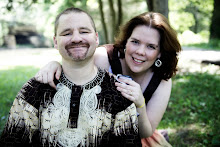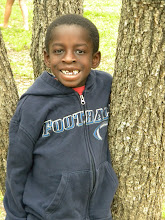Crocheting a Pilot Program
I've tried to teach myself how to crochet off and on since I was 10 years old. Here's how it went the first 20 years...
I would sit down with a crochet needle and some yarn. I'd put the yarn through my fingers with no thought of how it should be done--it was good enough. I'd fake my way through a slip knot (to get the yarn on the needle) then make a chain (the most basic stitch in crochet). No book. No teacher. No real knowledge about how to go about things beyond getting a flimsy foundation row (chain). Then I'd call my mom or MIL and ask what to do next. They'd try to tell me over the phone...I'd get half of the instructions mixed up...and start doing what I *thought* was crochet. Things would get all knotted up sometimes so I'd have to start over completely, losing all of the semi-progress I had made. Eventually I would end up with a knotted mess that looked nothing like the project I was trying to make. I would cut the yarn off (because it was too knotted to undo and try again)...put everything away...and determine that I didn't like crochet anyway!
Eventually, over 20 years of this back and forth battle with crochet, I learned from my mistakes--I learned that I'd never learn without careful preparation and education! So 2 years ago I sat down with my MIL (a master crochet artist) and got committed. She made me practice over and over again how to weave the yarn between my fingers so that it slides easily as I make stitches. We worked for hours on making a slip knot (for some reason so hard for me!). She made me do simple chains over and over, before moving to the next step, because without a good foundation row it's hard to get going. Eventually I learned the next most basic stitch--a double crochet. From there I was off and running. But unlike past tries with crochet, I didn't just assume I knew what I was doing. I got books, and studied the language of patterns on the internet. The past 2 years I've made (what I consider to be) great progress and can now make a variety of projects successfully.
So how does any of this relate to pilot adoption programs? Well...
I think some agencies sit down and decide to make a program with the VERY best of intentions. They know the very basics of the country's laws, make some contacts in the country, and start advertising a program to adoptive families. To me, this equates to my basic knowledge of how to make a crochet chain. I didn't know what to do with it once it was made, but I knew how to make a chain. I knew just enough to be able to tell someone "Yes, I know how to crochet." Isn't this like some agencies that set up "just enough" of a program to advertise it, but really don't know how to go beyond the very basic structure they have established?
On the other hand there are other agencies who decide they'd like to check into the *possibility* of beginning a *pilot* program in a country. The do basic research (i.e. learn how to make a crochet chain) in the US. Then they go to the country and do more research (practicing their chain). They make sure they have copies of the ACTUAL law ("how to" book). They consider all of the ways to go about setting up a program in that country (like choosing how difficult your project will be in crochet), and then choose a method that they hope will create a beautiful program. I think that usually these agencies decide to do things simply at first (like a simple granny square)--not wanting to challenge their knowledge of the adoption program of that country with unusual cases from the start. They start small (like a granny square) and practice what they know (making tons of granny squares), eventually building a solid international adoption program (a beautiful granny square afghan if you will). Also, (very importantly) whenever someone new comes into the administration of the program--like an in country coordinator with no previous experience--I believe that good agencies tutor that coordinator very, very, VERY closely (teaching how to hold the yarn, and make slip knots). I think that in this way an agency builds up a program in which every involved person has a good knowledge base of "the project."
Maybe this only makes sense to me. But as I consider my small part in setting up a Ghana adoption program for other adoptive families I find myself taking it very seriously--wanting to build piece by small piece and not rush into big fancy projects for fear of ending up with a knotted mess. =-)
Love,
AnitaLove,










0 comments:
Post a Comment